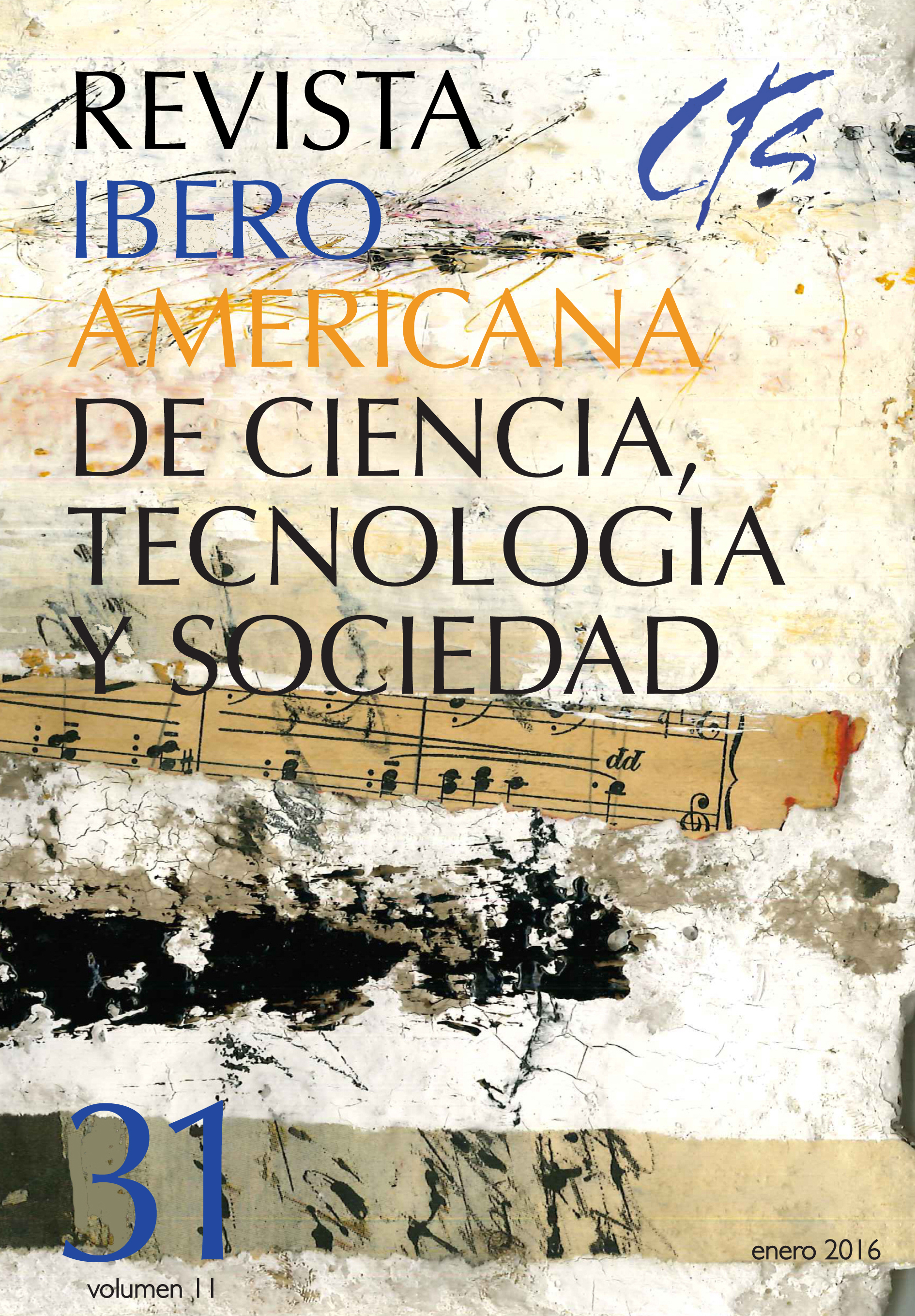Presentación: Ciencia, tecnología y género. Enfoques y problemas actuales
DOI:
https://doi.org/10.52712/issn.1850-0013-483Abstract
Hace cincuenta años que la socióloga Alice Rossi (1965) formuló la pregunta central con la que se abría un nuevo campo de investigación sobre las relaciones entre la ciencia, la tecnología y la sociedad: ¿por qué tan pocas? El problema que Rossi identificaba no era nuevo, sino tan antiguo como la ciencia misma. Sin embargo, no es hasta los años 60 del pasado siglo XX cuando comienza a tematizarse la ausencia de mujeres en la producción de conocimiento científico.
Downloads
References
ALAIMO, Stacy y HEKMAN, Susan (2009): Material feminisms, Bloomington, Indiana University Press.
COLLINS, Harry y YEARLEY, Steve (1992): “Epistemological chicken”, en Andrew Pickering (ed.): Science as practice and culture, Chicago, The University of Chicago Press, pp. 301–326.
COWAN, Ruth Schwartz (1983): More work for mother. Ironies of household technology from the open hearth to the microwave, Nueva York, Basic Books.
FAUSTO-STERLING, Anne (2000): Cuerpos Sexuados, Barcelona, Melusina, 2006.
GARCÍA DAUDER, Silvia (2005): Psicología y feminismo. Historia olvidada de mujeres pioneras en psicología, Madrid, Narcea.
GONZÁLEZ GARCÍA, Marta I. (2001): “¿Hacia dónde dirigir la mirada?”, en Andoni Ibarra y José A. López Cerezo (eds.): Desafíos y tensiones actuales en ciencia, tecnología y sociedad, Madrid, Biblioteca Nueva.
HARAWAY, Donna (1988): “Conocimientos situados: la cuestión científica en el feminismo y el privilegio de la perspectiva parcial”, en Donna Haraway (1991), pp. 313-346.
HARAWAY, Donna (1991): Ciencia, cyborgs y mujeres, Madrid, Cátedra, 1995.
HARDING, Sandra (1986): Ciencia y feminismo, Barcelona, Morata, 1996.
HUBBARD, Ruth (1990): The Politics of Women’s Biology, New Brunswick, Rutgers University Press.
KELLY-GADOL, Joan (1977): “Did women have a Renaissance?”, en Renate Blumenthal, Claudia Koonz y Susan Stuard (eds.): Becoming Visible: Women in European History, 2ª ed., Boston, Houghton Mifflin, 1987, pp. 175-201.
MAGALLÓN, Carmen (1996): “¿Extrañas en el paraíso? Mujeres en las ciencias físico-químicas en la España de principios del siglo XX”, en Teresa Ortiz y Gloria Becerra (eds.): Mujeres de ciencias. Mujer, feminismo y ciencias naturales, experimentales y tecnológicas, Granada, Universidad de Granada, pp. 33-59.
MILLET, Kate (1969): Política sexual, Madrid, Cátedra, 2010.
OOST, Ellen van (2003): “Materialized gender: How shavers configure the users’ femininity and masculinity”, en Nelly Oudshoorn y Trevor Pinch (eds.): How User matter. The Co-Construction of Users and Technology, Cambridge/Londres, MIT Press, pp. 193–208.
PULEO, Alicia (2011): Ecofeminismo para otro mundo posible, Madrid, Cátedra.
ROSSI, Alice (1965): “Women in science. Why so few?”, Science, vol. 148, nº 3674, pp. 1196-1202.
SCHIEBINGER, Londa (1999): Has feminism changed science?, Cambridge, Harvard University Press.
SCHIEBINGER, Londa (2008): Gendered innovations in science and engineering, Stanford, Stanford University Press.
SCOTT, Joan Wallach (1986): “Gender: a useful category of historical analysis”, American Historical Review, vol. 91, nº 5, pp. 1053-1075.
SINGLETON, Vicky (2004): “Feminism, sociology of scientific knowledge and postmodernism: politics, theory and me”, Social Studies of Science, vol. 26, nº 2, pp. 445-468.
STAR, Susan Leigh (1991): “Power, technologies and the phenomenology of conventions: on being allergic to onions”, en John Law (ed.): A Sociology of Monsters: Essays on Power, Technology and Domination, Londres, Routledge, pp. 25-56.
STRUM, Shirley C. y FEDIGAN, Linda M. (eds.) (2000): Primate Encounters. Models of Science, gender and society, Chicago, University of Chicago Press.
TUANA, Nancy (2004): “Coming to Understand: Orgasm and the Epistemology of Ignorance”, Hypatia, vol. 19, nº 1, pp. 194-232.
VALLS, Carme (2009): Mujer, salud y poder, Madrid, Cátedra.
WARING, Marilyn (1988): If Women Counted: A New Feminist Economics, Nueva York, Harper & Row.
Downloads
Published
How to Cite
Issue
Section
License
Copyright (c) 2023 CC Attribution 4.0

This work is licensed under a Creative Commons Attribution 4.0 International License.
All CTS's issues and academic articles are under a CC-BY license.
Since 2007, CTS has provided open and free access to all its contents, including the complete archive of its quarterly edition and the different products presented in its electronic platform. This decision is based on the belief that offering free access to published materials helps to build a greater and better exchange of knowledge.
In turn, for the quarterly edition, CTS allows institutional and thematic repositories, as well as personal web pages, to self-archive articles in their post-print or editorial version, immediately after the publication of the final version of each issue and under the condition that a link to the original source will be incorporated into the self-archive.











